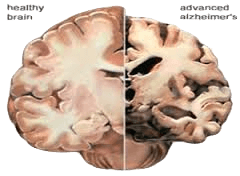
Scott Turner MD, PhD, is a neurologist who works at Georgetown University. Last year he began enrolling people with mild to moderate Alzheimer’s disease for a nationwide USA study.
Patients were already under the care of their local own so the expectation was that there would only be a handful of patients with diabetes. The protocol of the study ensured that type diabetic patients were excluded from the study.
What Dr. Turner found is now starting to raise
many questions. He discovered that a very large number of the patients actually had pre-diabetes. In his words the number was “Shocking”
To join the study, participants were first given a fasting glucose tolerance test to obtain a baseline level, and then retested two hours after eating. During digestion, the blood sugar level increases, but the pancreas produces insulin to lower it. A high sugar level after two hours reveals glucose intolerance (pre-diabetes) or diabetes if the level is very high.
“The number of people with glucose intolerance (pre-diabetes) was much higher than expected,” says Dr. Turner. “I was surprised by how many people didn’t know they were pre-diabetic, and these are individuals who already get the best medical care.”
Five or 4 percent of the 128 participants had impaired fasting glucose levels. Three others or 2 percent had results diagnosing them with type 2 diabetes. 125 subjects who completed the two-hour test, 38 or 30 percent were found to have glucose intolerance. 16 or 13 percent had results which diagnosed them as type 2 diabetics. The overall prevalence of impaired glucose tolerance or diabetes at two hours was 43 percent. This is almost half of the individuals recruited to the study.
Dr. Turner asks, “How does glucose intolerance or diabetes lead to AD? Does the inflammation associated with AD trigger glucose intolerance? Or do both events create a vicious cycle of Alzheimer’s and glucose intolerance?”
Given that there is such a high incidence of type 2 diabetes in this group of Alzheimer’s patients, there could be a link between the two diseases. This of course is of great interest and there will no doubt be more studies into this area.
Dr. Turner Discussed his findings at the Alzheimer’s Association International Congress in Boston on July 14th, 2013.





